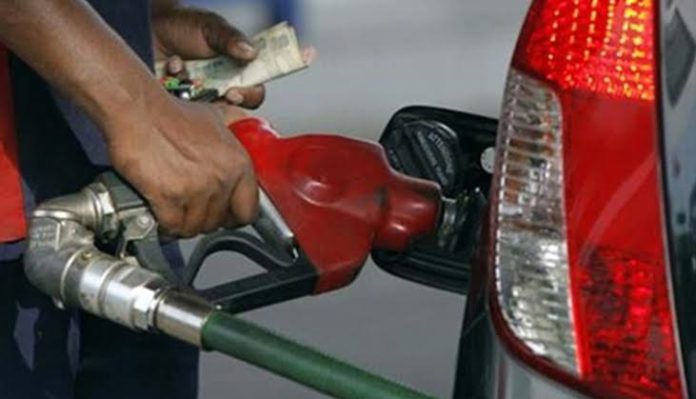The Federal Government on Thursday said it would crash the price of petrol by providing Compressed Natural Gas as an alternative source of fuel for vehicles nationwide.
The CNG is a fuel that can be used in the place of Premium Motor Spirit, popularly known as petrol. It can also be used in the place of diesel and Liquefied Petroleum Gas.
Speaking on what the Federal Ministry of Petroleum Resources would work on this year during a press conference in Abuja, the Minister of State for Petroleum Resources, Timipre Sylva, stated that the Federal Government was working for the passage of the Petroleum Industry Bill before May.
He further stated that moves by the Federal Government to recover $62bn from international oil companies were seemingly impossible, as no such money was sitting anywhere to be harvested by the country.
Sylva further declared that the Nigerian oil and gas sector was retrogressing, particularly when compared to oil sector of other nations.
He stated that the use of petrol had caused serious drain on the finances of the Federal Government as a result of the continued subsidy on the commodity.
Explaining how the government intends to crash petrol price, Sylva said, “When you say we are thinking about reducing the pump price of petrol, I could easily say yes. Why I could say yes is because we are looking at giving the masses an alternative.
“Today, we are using the PMS but what we want to do, going forward, is to see that we are able to move the masses to the CNG. If we take all transport vehicles to the use of the CNG, you would have impacted the poor positively.”
Sylva said findings by government showed that the CNG cost less than the subsidised PMS and that once the CNG was fully deployed, the price of fuel would crash.
“The subsidised rate of the PMS per litre is N145 but the CNG cost between N95 to N97 per litre and that is why I said that we want to reduce the cost of fuel,” he stated.
He said Nigeria had abundant gas and that deploying the CNG would not be tough for the country.
“Nigeria’s gas reserve is significant. Nigeria currently has estimated 202TCF (trillion standard cubic feet) of gas, with a projection of 600TCF,” Sylva said.
On the PIB, the minister said, “We are optimistic that both the Petroleum Industry Governance Administration and Host Communities Bill, on the one hand, and the Petroleum Industry Fiscal Bill, on the other hand, will be passed within the first anniversary of the second tenure of this administration.”
Commenting on moves by the Federal Government to recover $62bn from international oil companies based on an October 17 judgment of the Supreme Court, Sylva stated that it was practically impossible to recoup such funds from the IOCs.
He declared that no $62bn was anywhere for release by the IOCs and explained that it was best for the government to sit and discuss with the oil firms on how to go about the issue.
The Federal Government had through the Office of the Attorney-General of the Federation written to the IOCs, demanding various sums of money on the basis of the Supreme Court judgment.
The court had ordered the Federal Government to recoup all revenues lost to oil-exploring and exploiting companies due to wrong profit-sharing formula since August 2003.
Sylva said, “Yes there was a provision in the amended Deep Offshore Act, but when we had crude oil prices above $20 per barrel, the Federal Government should have asked for some form of increase in its take.
“Unfortunately we didn’t activate that aspect. You will not blame the Federal Government or the oil companies for not activating that aspect of the Act. You will agree that $62bn could not have been sitting somewhere for us to harvest; it is not possible.”
The minister stated that Nigeria was retrogressing in the oil sector, particularly when compared to other nations that started at similar times with Nigeria in the oil and gas business.


